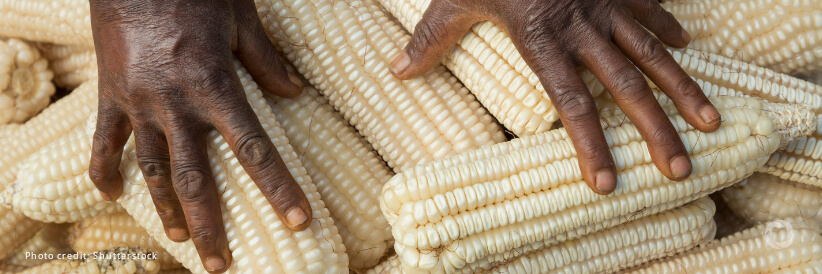Djibouti, Eritrea, Ethiopia, Kenya, Somalia, and Sudan are suffering a once-in-a-century drought. Hardly any rain has fallen for five years – and many people are going hungry. Read on to find out how Germany is helping on the ground. Many millions of people in the Horn of Africa are subsistence farmers or agricultural workers or keep cattle. They are dependent on what their fields and animals provide.
Previously, the annual rainy season was what guaranteed their survival. It ensured that vegetables and cereals grew and that there was enough drinking water and animal feed. The last rainy season in many parts of the region was now five years ago. With every passing year, the lack of rain causes more people to lose their livelihoods. The ground dries out, plants wither, and around 11 million cows, goats and sheep have already died, according to estimates by the United Nations.
The humanitarian situation in the Horn of Africa has deteriorated massively in recent years due to the drought. More than 23 million people in the region urgently need humanitarian assistance in order to meet their basic needs – around twice as many people as the entire population of Belgium.
Worsening spiral of the climate crisis and conflict
But the drought is not the only reason for this humanitarian emergency. Armed conflict is also a recurrent cause of hardship, displacement, and forced migration. In addition, the Russian war of aggression against Ukraine is having a severe impact on supply chains and on wheat and fertilizer prices worldwide, making it unaffordable for many people to shop at their local markets. As a result, they are forced to skip meals and they become increasingly malnourished.
Concrete assistance for people in need
The people in the region cannot break free of this desperate situation on their own. They are dependent on humanitarian assistance from the international community. Germany has been a reliable partner for years now. In 2022 the Federal Government provided around 190 million euros to ensure the survival of the people in the Horn of Africa. The Federal Foreign Office is mobilizing another 60 million euros to secure the livelihoods and thus the survival of people in the Horn of Africa in joint efforts with seven relief organizations.
One of these partners is Help Age, which works with local relief organizations to support refugees and internally displaced persons in Ethiopia. More than 42,500 people will receive concrete support between now and the end of 2024, for example, special foods to treat severe malnutrition, seeds, and farming equipment – or sanitary and hygiene packages for women and girls. Older people with impaired vision will receive mobility training to help them go about their daily lives. The Federal Foreign Office is providing 2.75 million euros to this end.
The United Nations Children’s Fund (UNICEF) advocates for children’s rights and needs around the world. The Federal Foreign Office is supporting UNICEF’s work on the African continent with a contribution of 5 million euros. This will help UNICEF to respond swiftly to acute crises across the continent.
The Federal Foreign Office is providing this assistance in line with its humanitarian principles. In addition, it is making a particular effort to ensure that the people who are most heavily affected benefit from assistance and that this assistance is suitable for their differing needs, especially the needs of women and children. The relief package of around 60 million euros for the people in the Horn of Africa is part of the humanitarian assistance that Germany will provide in the coming year to alleviate hardship worldwide. In total, the Federal Foreign Office has 2.7 billion euros of funding available for this purpose.

